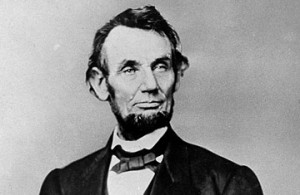 It’s a question I find myself asking every now and then. Being a leader always comes with it added responsibility in some form or another. It brings added responsibility because everyone already has things they are responsible for in their life. Whether it is their rent or mortgage, grocery bills, school homework, parenthood responsibilities, job responsibilities, you name it. We all have them in some mix. But when a person is a leader, added responsibilities come along with it. With that comes added pressures, added stress, more hours most likely needed in order to get things done. So why would someone want to be a leader?
It’s a question I find myself asking every now and then. Being a leader always comes with it added responsibility in some form or another. It brings added responsibility because everyone already has things they are responsible for in their life. Whether it is their rent or mortgage, grocery bills, school homework, parenthood responsibilities, job responsibilities, you name it. We all have them in some mix. But when a person is a leader, added responsibilities come along with it. With that comes added pressures, added stress, more hours most likely needed in order to get things done. So why would someone want to be a leader?
Is it a need to be important? Is it a need to be needed? Is it a need to be loved or desired? Is it a need to make a difference? Is it a need to have a reason for one’s own existence in the world?
Looking back in my life, I’ve seen myself placed in various roles of leadership. Most of those times I didn’t want to be in the leadership role but I knew that if I didn’t do something then something I believed needed to be done would not be done. I think that’s probably one of the strongest reasons a person takes on a leadership role. A person’s own beliefs and convictions cause them to see the importance of acting on them when they believe the time to do so is at hand.
I don’t need to tell anyone who has held a leadership position of any kind about those added pressures. And that those pressures can get to those who find themselves with the leadership role from time to time. After all, we are all only human. We all have our weaknesses. But not all of us allow those weaknesses to be an excuse for not leading. When the pressure of leadership causes a person to lose control of their emotions, and get angry or upset, it can derail whatever the person is attempting to do. When this topic came to me, I checked out Kevin’s favorite book, Donald Phillip’s “Lincoln on Leadership”, in it I found this:
“The plain fact of the matter is that, for any person to successfully lead others, he or she must deal with the reality and be ready to accept the fact that leadership at times can bring out the worst in us. And understanding, as well as coming to grips with the darker side of your personality, is key to dealing with real-life situations.”
I think as human beings that are meant to interact with others, leaders must accomplish the puzzling task of managing their darker side. The book said whenever Lincoln found himself getting angry or upset at someone, he would write that person a very scolding letter outlining the nerve the other person had in doing whatever it was that upset him. He would lay out everything that was on his mind about that person at the moment within the letter. When he finished the letter, he proceeded to place it in an envelope for mailing. After he sealed the letter, he wrote on the back “Not sent”. He felt better for having released his negative feelings, but probably realized that chewing a person out would not serve any real purpose.
While doing some surfing on the internet, looking for content about this subject, I stumbled on this and it felt like it was pertinent, “Paradoxical Commandments of Leadership” written by Kent M. Keith back in 1968 (The Silent Revolution: Dynamic Leadership in the Student Council) for high school student leaders.
People are illogical, unreasonable, and self-centered.
Love them anyway.
If you do good, people will accuse you of selfish ulterior motives.
Do good anyway.
If you are successful, you will win false friends and true enemies.
Succeed anyway.
The good you do today will be forgotten tomorrow.
Do good anyway.
Honesty and frankness make you vulnerable.
Be honest and frank anyway.
The biggest men and women with the biggest ideas can be shot down by the smallest men and women with the smallest minds.
Think big anyway.
People favor underdogs but follow only top dogs.
Fight for a few underdogs anyway.
What you spend years building may be destroyed overnight.
Build anyway.
People really need help but may attack you if you do help them.
Help people anyway.
Give the world the best you have and you’ll get kicked in the teeth.
Give the world the best you have anyway.
The world is full of violence, injustice, starvation, disease, and environmental destruction.
Have faith anyway.
Do you know of anyone who you would consider to be a good or even great leader? Why do you believe they are?
If you see yourself wanting to be a leader, what has been your desire for leadership?


